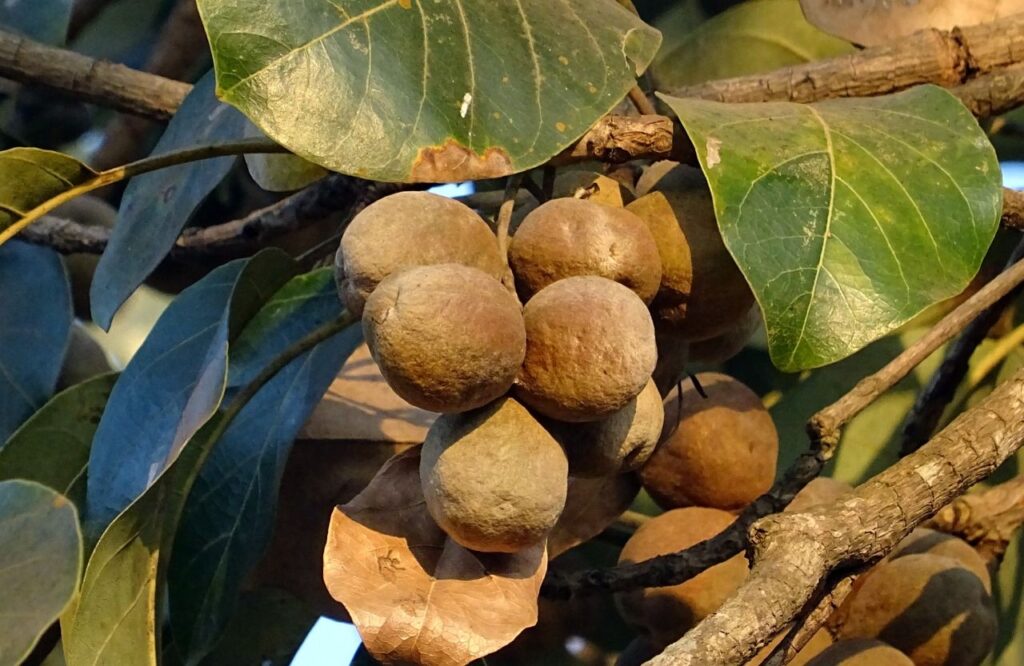Constipation stems from a variety of factors. Bowel movements can be improved by introducing modifications to diet and daily routines. Quick relief from constipation requires a conscientious approach to dietary practices.
Various factors contribute to constipation, including:
- A diet lacking in fiber
- Inadequate hydration
- Underlying conditions such as Lazy Bowel Syndrome
- Common occurrence during pregnancy
- Insufficient physical activity
- Frequent travel disruptions
Ayurvedic Herbs for Constipation
Let’s explore key herbs used in Ayurveda for easing constipation.
Isabgol (Psyllium Husk): Psyllium husk contributes bulk to stools, acting as a mild natural laxative and facilitating constipation relief. Isabgol is easily available in groceries and medical stores across India. Add some isabgol in a half a glass of water, mix and let it soak for a few minutes. Consume this 1-2 times a day, depending on severity of constipation.
Triphala: Triphala is an immensely effective solution for combating constipation, bringing about notable improvements in overall well-being. It has the capacity to alleviate discomfort and facilitate smoother bowel movements.
Triphala is an Ayurvedic herbal formula consisting of equal parts of three myrobalans, taken without seed: Amalaki (Phyllanthus emblica, or emblic myrobalan or Indian gooseberry or amla), Bibhitaki (Terminalia bellirica, or baheda), and Haritaki (Terminalia chebula, or hard).
Triphala tea can yield beneficial outcomes. To prepare this tea, combine one-fourth teaspoon of Triphala with half a teaspoon of coriander and cardamom seeds. Grind these components together and enjoy this tea twice daily. Triphala has glycosides, which offer laxative qualities, effectively addressing indigestion and the troubles of constipation.

Swarnapatri (Senna): Also referred to as Senna, Swarnapatri is known for its potent laxative properties. It assists in balancing Vata and stimulating Pitta, making it an effective remedy for constipation. However, its strong effects necessitate cautious usage.
Aragwadha (Purging Casia): Aragwadha acts as a gentle laxative, particularly helpful for addressing constipation caused by Pitta imbalance.
Amla (Indian Gooseberry): With its fiber content, Amla can offer relief from constipation. However, overconsumption may worsen the condition, highlighting the importance of moderation.
Amla is also a component in the Ayurvedic formulation – Triphala churna.
Amla is rich in Vitamin C, and help build immunity. It is also helpful in fighting common cold.

Methi (Fenugreek): Fenugreek seeds are a rich source of soluble fibers, aiding in the prevention of constipation. They are particularly suitable for alleviating Kapha type constipation, while individuals with elevated Pitta levels might need to exercise caution.
Ginger: Ginger’s warming qualities aid digestion and help alleviate constipation. Incorporating ginger tea or wet ginger with jaggery into one’s routine can be beneficial.
Gandharvahasta (Castor): Castor oil, recognized for its laxative properties, stimulates the colon for smoother elimination.
Haritaki: A standout remedy for constipation, Haritaki plays a crucial role in balancing Vata and encouraging healthy bowel movements.
Ajwain (Carom Seeds): Ajwain stimulates the production of digestive enzymes, aiding in constipation alleviation.
Trivrit: With its purgative attributes, Trivrit aids in addressing constipation and offers relief from hemorrhoidal symptoms.
Liquorice Root: Consuming powdered liquorice root with warm water can support digestion and stimulate bowel activity.
Ginger Tea: Inducing bowel movement and treating constipation, ginger tea is an effective natural remedy.
Raisins and Prunes: Soaked raisins and prunes serve as natural laxatives, aiding digestion and relieving constipation.
Bael Fruit: Bael fruit pulp with jaggery improves bowel movements and alleviates constipation.
Anjeer (Figs): Soaked anjeer offers a sweet and effective remedy for constipation, suitable for both adults and children.
Coconut Oil: Ingesting a spoonful of coconut oil daily can lubricate the intestines and facilitate smoother bowel movements.
Ayurvedic Medications for Constipation
When lifestyle adjustments fall short in managing chronic constipation, Ayurvedic medicines come to the rescue. These medicines are carefully crafted to naturally stimulate bowel movements and restore the equilibrium of digestion. Let’s explore some notable Ayurvedic medications for constipation:
- Triphala Tablet: A blend of Amla, Haritaki, and Vibhitaki, these tablets bolster digestion and promote healthy bowel movements, fostering a robust digestive system.
- Abhayarishta: This syrup cleanses the colon, with Haritaki as its primary ingredient. It assists in clearing the digestive tract and facilitating smoother bowel movements.
- Laxinol-H Capsule: Formulated with natural elements like Svarnapatri, Amla, Castor, and Hareetaki, these capsules offer relief from mild-to-severe constipation without triggering significant side effects.
- Gandharvahastadi Kwath: This Ayurvedic preparation contains gut-cleansing components like ginger and haritaki, functioning as a natural laxative and colon cleanser.
- Balakalpam for Kids: Tailored for children, this remedy tackles constipation while enhancing immunity.
